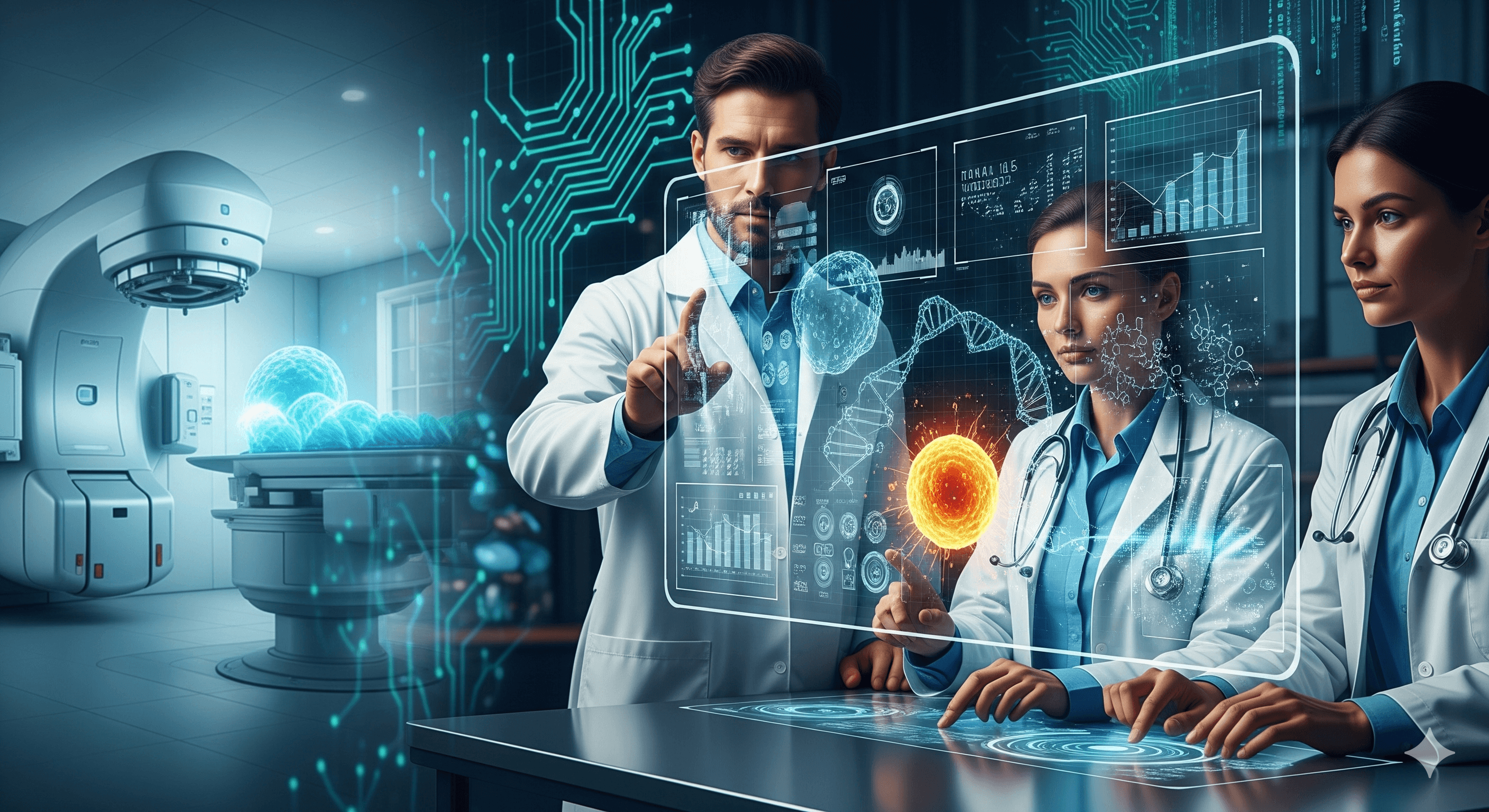Artificial intelligence (AI) is a new tool that can diagnose cancer and guide treatment, as well as predict patient survival.
Cancer is one of the health emergencies that is very difficult to deal with. The journey between diagnosis, characterised by uncertainty and urgency, and treatment and survival may be like a journey through a storm. However, nowadays, another ally has come—artificial intelligence (AI). It is not some far-off idea, but a real-world agent that is already transforming the way we comprehend and combat cancer.
An Entirely New Cancer Care Story
Suppose that a doctor has to spend hours looking through hundreds of pathology pictures, struggling with exhaustion and time constraints to identify slight irregularities. Imagine now AI intervening—not to substitute the doctor but to present a critical, unwearying second opinion. It is the fact of an innovative AI platform created at Harvard Medical School, which can detect cancer, prescribe treatments, and predict survival, in one of the 19 cancer types, and all of them in a single versatile model. It goes beyond purpose-specific devices, and it provides a one-stop solution that looks and feels like ChatGPT applied to oncology.
Similarly, scientists at Stanford Medicine launched MUSK, an artificial intelligence capable of integrating images of MRIs, CT scans and pathology slides with text, including physician notes. MUSK, trained on more than 50 million images and 1 billion pathology texts, predicts patient outcomes, assists in making immunotherapy decisions, and recognises risks of recurrence in a variety of cancers.
In the meantime, SCORPIO, an AI tool fed by only blood test data and medical history, was found to be more effective than FDA-approved diagnostics in deciding whether a patient would benefit from immunotherapy—and how long they might live after that check-up.
Companies such as Weill Cornell Medicine, in partnership with Regeneron, have developed AI to cluster patients by their potential response to treatment—simplifying trial design and one-on-one treatment plans alike.
And innovative technologies, such as CHIEF at Harvard, not only detect cancer and its genetic signature, but also forecast response to treatment and survival without the need to run expensive genomics assays.
Between Computers and Clinics: Actual Effects in the Present
This is not tomorrow's technology, but it is happening. Detection can save lives: A lung lesion detected by AI and identified as a 64 percent likelihood of cancer resulted in early intervention and an almost full recovery by Susan Riffle.
UCLA has developed an artificial intelligence system named Unfold AI which can detect prostate cancer with 84 percent accuracy, compared to 67 percent accuracy among doctors and drastically reduces the results of patient surgery.
Hospitals such as Northwell Health, in New York, are implementing systems such as iNav to find pancreatic cancer at an early stage through regular scans—reducing the amount of time it takes to detect and treat the disease by half, a game changer due to its low five-year survival rate of only 13 percent.
The Human–AI Partnership
AI tools do not replace human experts, they simply enhance their knowledge with quicker pattern recognition, integration of data and magnitude. Oncologists usher in wisdom, compassion, ethics and subtlety. AI introduces accuracy, escalation and broad learning with millions of data points. They are changing oncology together.
On behalf of Healthcare Providers and Beyond
Hospitals are made fast, precise and resource-efficient. Pharma and biotech companies are able to accelerate discovery and trial matching of the drugs. Early diagnosis, individualized treatment and improved outcomes are all beneficial to all stakeholders.
And where Smart Tech LLC comes into the frame. We believe at Smart Tech LLC and strive to make such AI tools affordable and reliable—not only cool ideas. It can be either assisting hospitals to implement AI-assisted diagnostics such as CHIEF and MUSK or helping startups develop oncology-related platforms or supporting enterprises to make informed decisions on safe, ethical AI usage, but we have a single objective: to convert data matrices into meaningful information that can save lives.
We also know that stakes in healthcare are human. That is the reason why we value integrity, pragmatism and trust in all partnerships.
The Story That Plays Out Now
These AI developments: diagnosing, treatment guidance, survival prediction are not a fantasy anymore. They are actual, concrete and quickly transforming oncology. To patients, they can provide early hope. For doctors, sharper tools. To society, a new chapter on the war against cancer.
We hold that working together humans and machines is where the most powerful breakthroughs occur at Smart Tech LLC. And in the cooperation between them, the future of cancer care is smarter, faster and humane.
